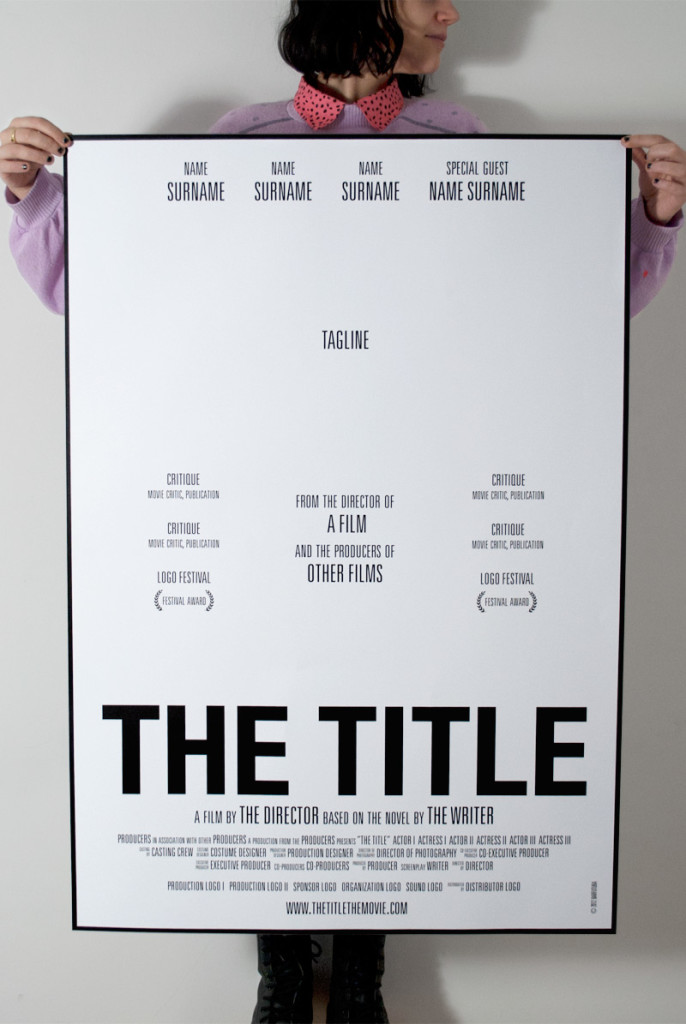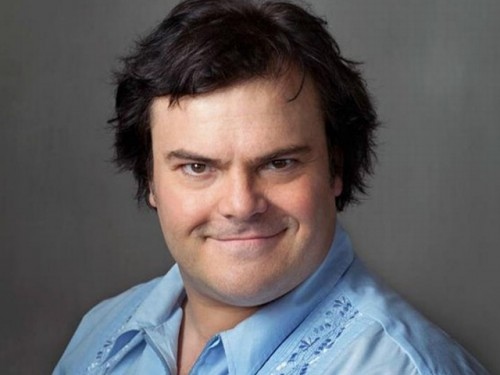Genre: Comedy
Premise: An innocent Uber driver’s night is turned upside-down when a crotchety old cop ropes him into a plan to get revenge on the criminal who killed his ex-partner.
About: This script sold for mid six-figures a couple of weeks ago and appears to have been a group effort. The writer, Tripper Clancy, conceived of the idea with his manager, Jake Wagner, and then had help writing the script from Jonathan Goldstein and John Francis Daley, the “Horrible Bosses” writers who are writing the next Spider-Man movie.
Writer: Tripper Clancy
Details: 109 pages
The drive to get an Uber movie made is going to be an interesting one because in addition to Stuber, another Uber project was sold, that one a pitch. The bad news for Stuber is that that project has Will Ferrell in the lead role, and usually if you’re in a competing project with Will Ferrell, it’s game over. Unless, of course, you have a portly 35 year old female main character as your lead and Melissa McCarthy’s home phone number.
But Stuber’s lead is a young black man, making me wonder if this is a Kevin Hart project in the making. Of course, wasn’t Kevin Hart just in Ride Along 2, which, in many ways, is a similar premise? One would say yes, but then one would remember that Kevin Hart will be in just about any movie as long as you can write an 8 figure check. So who knows.
Stuber starts out with 50-something hard-nosed detective Vic Manning losing his partner while trying to catch the pre-eminent drug dealer in Los Angeles, the Columbian kingpin, Carolina Santos.
Cut to a year later, all 365 days of which Vic has used to hunt down Santos. But the bizatch is nowhere to be found. So isn’t it lucky that Santos reappears on the day that Vic just got Lazik surgery on his eyes and can barely see.
Enter Stu. Stu is just your average dude, trying to make an extra buck as an Uber driver so he can pay for that 1.7 karat ring for his beautiful girlfriend and make their union official. Doesn’t matter that she makes him check in with him every 30 minutes and also uses “Find my Phone” to make sure he is where he says he is at all times. Oh no, those are totally healthy signs in a partner.
Vic hops into Stu’s Uber just as Stu was about to call it a night. As you’re likely realizing, Vic needs Stuber as his eyes and wheels since he can’t see or drive himself. Stu is so not down with this, but the Most Interesting Man in the World clone tells him to grow some balls and drive him to where he needs to go, despite not understanding that Uber doesn’t work like that.
The two go to crack dens and strip clubs and, pretty soon, Stu is doing things like holding criminals at gunpoint, all of which is NOT in the Uber handbook. As you’d expect, Vic teaches Stu a little bit about being a man and Stu teaches Vic a little bit about being a human being, and in the end, despite their differences, they find common ground, as well as Santos herself.
So when you come up with an idea like this, your first job is to write down all the things that you can convey from a comedy standpoint that are specific to this idea. Those are the things that are going to separate your script from all the other scripts out there. Because if your jokes are going to cover things that could’ve been done in a movie about a cab ride or a ride along, your script isn’t going to stand out.
Stuber starts off that way. There are some funny exchanges between Stu and Vic about how Uber works. Stu explains that you can’t go to multiple destinations. Unless, of course, you use the “pool” feature. So Vic says he’s using that then, but Stu says, no, that’s something you have to use the app to control, and Vic doesn’t even have the app. And a lot of that banter is funny.
But once we’re out on our mission, Uber-specific-language goes out the window. This is basically a comedic Collateral or Ride Along. And while Collateral is ten years old, Ride Along 2 just came out this year. So you have to wonder how this comedy is going to differentiate itself.
With that said, I understand why they developed the idea like they did. By bringing a fare into the mix with a high-stakes goal (find a major drug dealer), your script is always going to be moving, will always have urgency, and will always have high stakes. These are the things that make both movies and spec scripts go, so they’re a smart move plot-wise.
I suppose you could just chronicle a wild and crazy Uber night, where fare after fare takes you to weird places with strange things happening, and find a lot of funny shit through that, but what would the goal be? Where are the stakes?
I think more could have been done with the team-up in Stuber, though. Again, when you’re looking for comedy inside your idea, you always go back to what’s unique about your idea. What’s unique about Uber drivers? Well, a lot of them are millennials with beards and an unhealthy love for Bernie Sanders. You’d then ask, “Who’s the worst person for that kind of driver to be stuck with?” And you’d have somebody close to Clint Eastwood, which Vic essentially is.
But while we do get some of that ideology clash, most of the humor inside the car is geared towards either Vic telling Stu to grow a pair or Stu’s relationship with his clingy girlfriend. And while the girlfriend stuff was funny, I kept asking, couldn’t these jokes be used anywhere? You can put clingy girlfriends in any comedy script.
So I much would’ve rather seen comedy that dealt with millennials vs. the tough guy generation. That’s where you’re going to differentiate yourself from the Ride Alongs of the world. Like where’s the scene where Stu Orders Grub Hub delivery on his phone despite them being parked 15 feet from a hot dog stand? Let’s show the ridiculousness of how the average millennial approaches basic life needs.
Stuber was okay, maybe not as creative as I would’ve liked it to be. But as I’ve come to realize, comedy is sooooo dependent on casting. So we’ll have to see who they get for this. If they come up with the right casting combo, this will be a big deal. If not, they can expect to be run over by Will Ferrell’s Uber.
[ ] What the hell did I just read?
[x] wasn’t for me
[ ] worth the read
[ ] impressive
[ ] genius
What I learned: The large majority of your jokes should be specific to the comedy idea you’ve come up with. If you come up with a joke or a comedic scene that could work in any comedy movie, you should probably go back to the drawing board and look for that joke that’s more specific to your movie.
Scriptshadow Challenge: You’ve just been tasked to come up with an Uber comedy premise for a studio. What would it be? Can you beat out this idea? Upvote your favorite pitch!
Genre: Sci-fi
Premise: A man’s world is thrown into disarray when an alien virus takes over the planet and he becomes the only being the virus cannot infiltrate.
About: This is a big sci-fi spec that just sold recently, and the news that makes this sale even cooler is that Fargo TV creator Noah Hawley will be directing it. That Fargo TV show, particuarly the second season, was some of the best television I’ve seen in a long time – the closest thing we got to Breaking Bad since Breaking Bad. And it even added UFOs into the mix. Walter White ain’t never had a UFO to play around with. Uh, yeah, count me in.
Writer: Joseph J. Greenberg
Details: 98 pages
You guys want to kill me with these late posts – I know – but there’s not much I can do about it. I’ll try to get back on schedule. Pray for me. But in the meantime, enjoy this sweet-ass spec script.
30-something “Man” is your average suburban husband who goes on daily killing sprees. Usually he uses guns. But when he wants to spice things up, he uses the axe. That makes the killings extra juicy.
The people Man kills aren’t exactly upset about the ordeal. They’ve gotten used to it. In fact, Man could send an axe blade through the head of a 13 year-old boy and a nearby elderly woman will just sigh.
So what the fuck is going on with Man? Well, the better question is probably, what the fuck is going on with earth? Three years ago, an alien virus arrived and infiltrated every living being, turning them into a giant unified networked organism. Technically, everybody is still themselves, but they’re being controlled by a universal AI that only cares about itself.
Everyone, that is, except for Man. The alien organism can’t seem to assimilate Man, which is really frustrating, man. As a result, Man walks around killing people to both deal with his depression and piss the aliens off.
Then one day, things change. A mutation has begun to occur in certain people, causing them to attack others. Not like the way Man does – the attacks are more planned, and they seem to be coming from someone else, someone else who, like Tom, can’t be controlled.
When Man learns that there are a tiny percentage of others out there like him, particularly a woman named Maya, he strikes a deal with the alien AI. He’ll kill all these mutations for the AI if he can meet Maya. The AI is hesitant. The danger of two pure-humans mating could have drastic effects on the network. But in the end, it may be the only way for it to survive.
Have you ever seen that really really really really really really really really bad movie, The Host? It was from the same woman who wrote Twilight? So, yeah, that should give you an idea of the level of quality there. Well “Man Alive” is like the cool version of that idea.
And actually, if you’re really serious about screenwriting and you have time, go watch The Host and then read this script, as it will show you how easy it is to take the same idea and make it either terrible or great.
One of the first lessons that Man Alive teaches us is the power of thinking non-linearly. It’s our default, as human beings, to think from beginning to end. And while that by no means ensures a bad story, the non-linear option allows for a lot more creativity.
Take the original Independence Day. I know, some people love this movie. But let’s be honest, the screenplay is terrible. And one of the reasons for that is that the story is embarrassingly linear. Earth is fine. Aliens arrive. Aliens blow shit up. Aliens attack. Earth fights back. There’s no creativity to it. So eventually, we get ahead of the story, and the only thing left to keep our interest is flashy special effects and Jeff Goldblum.
Man Alive does not start with the aliens arriving. It starts well afterwards. We are firmly entrenched in a world where the aliens have taken over. But the great thing about Man Alive is that it doesn’t stop there. It also doesn’t tell us yet who these aliens are or how they operate. In fact, we don’t even know there ARE aliens in the opening scene. We witness a man go on an axe-murdering spree and promptly wonder, “What the fuck is going on and why is nobody trying to stop this guy?”
This is the power of non-linear. If you can drop the audience inside unique situations they don’t understand yet and play with them, you can have a lot of fun.
There is a danger to being too obscure early. The audience can become confused, even frustrated. But that tends to be a writing issue, not a conceptual issue. You have to make sure you’re ultra clear with the pieces of information you convey so that things aren’t too confusing, and Greenberg does a great job with that. His writing style is very crisp, very non-flashy, very to the point. That’s the kind of writing you need – writing that won’t be misinterpreted.
Man Alive is also a great example of a spec-friendly idea. I was trying to explain this to a writer the other day who wrote this big sprawling period piece that was beautiful and dramatic and character-driven and had something to say about the world.
But trying to fit those kinds of ideas inside of the spec format is like trying to fit a square peg inside a round hole. The spec format likes flashy ideas that are genre-driven, that get to the point quickly, that move fast, that have high stakes, and that feel big and unique. That’s not to say writing that kind of idea is the only way to succeed in the spec market. But it’s the outfit that looks best on the spec body. So when you’re dressing outside of that style, expect it to be hard.
I really liked this script. I really liked this writer. Since the writing was so simple, so straight-to-the-point, it never got in the way, allowing the story to be the star. And what a story it was. If you’re a sci-fi screenwriter, you need to study this screenplay to see what a good sci-fi spec reads like.
[ ] What the hell did I just read?
[ ] wasn’t for me
[ ] worth the read
[x] impressive
[ ] genius
What I learned: Man Alive pulls the low-budget genre trick off perfectly. The low-budget genre trick is you come up with a big genre idea, then approach it in a way where you’ll have minimal special effects work. We have a full-on alien invasion here. And yet the studio doesn’t have to spend a dime on alien special effects. Because the aliens are all inside the human beings. It’s a small thing, but it makes a big difference when your script is being evaluated for purchase.
Guys, I got nothing today. I’ve been playing catch-up all weekend after being sick last week, as well as trying to read all of your loglines. The logline thing has been tricky. A lot of the things I assumed were obvious are obviously not obvious. So I have a tall order this Thursday trying to come up with an article that’s going to explain how to a) come up with a good idea and b) turn it into a good logline, because we only have A WEEK AND A HALF before we have to start writing a screenplay!
I’ve just been reading so many amateur scripts lately that never had a shot because the idea wasn’t big enough, interesting enough, unique enough, or movie-friendly. The hope with my three-month screenplay challenge is that when you finish your script, it will actually have a chance in the marketplace. And if the idea isn’t good, you won’t have that chance. Nothing you wrote during those three months will have mattered. So here are a few things to keep in mind.
1) Something has to be original about your logline. Stop sending me loglines with witches, zombies, aliens, and vampires that don’t have a single original element. The biggest faux-pas made so far in the loglines I’ve received is that I can look at the logline and say, “I’ve already seen a movie similar to this.”
2) “Strange attractors” are logline crack. Bringing dinosaurs back to life. A guy is blown up every 8 minutes on a train until he solves a mystery. Michael Jackson’s life story told through the point of view of his monkey. They’re not required, but if you have one, your logline will stand out from the rest.
3) Irony is your best friend in Logline Land. A billionaire ice cream magnate who loses his empire and must take a job as a shoe salesman isn’t nearly as interesting as an ice cream magnate who’s lost his empire being forced to support himself by driving an ice cream truck.
The last logline post got too big so instead of doing Amateur Offerings, I’m going to start a new one. Now a lot of you are probably freaking out. The average score I’ve been giving the loglines I’ve received is a 4. Why? I’ll get more into that with Thursday’s article, but basically, many of these loglines are too ambitious (A man goes to 7 galaxies to procure DNA from seven different alien species to save his wife), too vague, too bland (A mobster kills his victim and must dispose of the body within 24 hours), don’t contain a movie-level hook (Two best friends join a dating service but then fall in love with each other), have zero irony, elements are too disconnected (A flower shop owner learns he’s going to die in six hours so he decides to run a marathon for the first time in his life), go on forever (way too many wordy loglines that go on and on and on – be quick and succinct), or a series of other things.
If you’re freaking out about your low scores, share the loglines here and ask others what’s up. And in the rare case that the readers tell you I’m nuts and the idea is good, discount my opinion. Majority always rules. I’ve seen some writers freak out about wording their loglines just right when the logline isn’t the problem. It’s the idea. You can’t polish a turd. We’re going to have to do another post on what makes a good idea, but hopefully I can cover some of that this Thursday. And if I haven’t gotten to your loglines yet, be patient. There are a lot of them!
p.s. a piece of advice. since there will be tons of people asking for logline advice, only ask for opinions on the loglines you truly care about. throwing up all five will probably get you less of a response.
Genre: Comedy
Premise: When her Mother goes missing on Black Friday, a strong-willed Teen is forced to quest into the shopping chaos with the person whose company she enjoys least – her perpetually immature and inebriated Uncle.
Why You Should Read: Why should you read My Druncle Kevin? I can sit here and make bold, downright blasphemous claims about my script being “Hughes-ian” or in the vein of a “Family Style Hangover,” but no one wants to hear that. Instead, here are ten stone cold bullet points…
1. It’s a comedy with heart for days.
2. It’s a script set during a time of year that is oddly underrepresented in movies.
3. It centers on a refreshing “buddy coppy” duo not often seen in film.
4. It’s all about family at its core.
5. It features the best dopey small car action since “The Italian Job.”
6. It cracked the ScriptShadow 250!
7. Too much pressure, skip to #8.
8. It’ll make you appreciate your mother.
9. My friend Joe said it was “pretty good,” and he doesn’t even read scripts!
10. It will put you in the holiday spirit just in time for… Spring. I’m nothing if not topical.
Writer: Vin Conzo
Details: 102 pages
It was nice to see those two Uber projects (one a spec script) sell last week. There was a time when comedy used to rule the spec roost, the sales vastly outnumbering the number of specs sold in any other genre.
But that’s not the case anymore, and it’s no surprise why. Comedy doesn’t travel well internationally, so studios are less excited about the genre in this new global-driven marketplace.
Because of that, there are less comedy slots open. The problem is that the average comedy writer hasn’t adjusted to that. They’re still writing like all you have to do is come up with a half-baked premise and a semi-funny hero and you’re good. Remember how there were like 8 bro-mance specs sold when “bro-mance” was a thing? Yeah, that ain’t reality anymore, bro.
These days, if you want a shot as a comedy writer, you either have to grab onto a trend right when Hollywood wants it, like the Uber thing, or you have to be on point in all three key areas: Great marketable premise, great main character(s), great execution. To me, the gold standard is still The Hangover.
Does Druncle Kevin pass this test?
32 year-old Kevin Stanley is the loser uncle of the year. Hell, he’s the loser uncle of the millennium. His older brother-in-law died awhile back, and the addiction-challenged Kevin freeloads off his widowed sister, Sarah, sleeping in her basement while she desperately tries to raise a family of two children and an aging father.
On this particular Thanksgiving evening, Sarah is heading off to pre-Black Friday sales madness, and gives Kevin one task. Hold down the fort. He’ll have to do so with a father who despises him and a 16 year-old niece, Paula, who used to love her uncle until he turned into the most unreliable loser in history.
Well, breakfast comes around the next morning and Sarah is nowhere to be found. When a good samaritan shows up at their door soon-after, saying she found Sarah’s purse in the Target parking lot, Kevin and Paula start freaking out. Could something have happened to Sarah?
Paula reluctantly teams up with her druncle, and the two head to a Black Friday crazed mall to put together the pieces of what happened. What they eventually find is that Sarah, who was planning to surprise her daughter with a new car for Christmas, accidentally stumbled upon two Black Market car criminals, who subsequently kidnap her, and who are probably going to kill her.
Will the inadequate and irresponsible Kevin be able to save his sister in time? Or will his contentious deteriorating relationship with his niece sabotage any shot at a Black Friday miracle?
So I can tell you why I didn’t advance My Druncle Kevin past the top 250. And most of it has to do with the opening scene. We’re immediately thrown into this chaos that is a Thanksgiving dinner, which is supposed to be humorous, but isn’t due to one problem: I don’t know anybody yet.
I don’t know these characters. I don’t know whose house we’re in. There’s an empty chair that’s supposed to represent a recently deceased person. But I don’t know who that person is/was. I’m able to piece together some things – this is called “My Druncle Kevin” so I figure Kevin is the drunk uncle. But I don’t even know which side of the family he’s on.
And that may not sound like a big deal but it’s a HUGE deal. If Kevin was the dead husband’s brother, that’s a whole different story than if he’s Sarah’s brother. If he’s the dead husband’s brother, he represents him. The dynamic between him and the others would be more complex. But if he’s Sarah’s brother, that’s more of an “annoying brother” type of thing and way more simplistic.
Not that one is better than the other. The point was, I didn’t know. Just like I didn’t know any of the characters yet. And therefore it was more an exercise in my trying to figure out who was who and what was going on as opposed to enjoying and laughing at the scene.
In one of my favorite comedy dinner scenes of all time, the famous dinner in the original Meet The Parents, the reason that scene works so well is because we’ve established not only the characters, but the relationship DYNAMICS.
Relationship dynamics are crucial to comedy. We need to know what’s going on between people before we can laugh at what’s going on between people.
So in that Meet The Parents scene, we know that the father doesn’t think Ben Stiller’s character is good enough for his daughter. That allows us to play with that dynamic. We can have Ben Stiller desperately try and impress the father. In doing so, we can have him repeatedly screw up. And with each successive screw-up, he can dig himself a deeper hole. And as that hole grows deeper, we can laugh while he tries to pull himself out.
When we don’t know the relationship dynamics yet – and this isn’t just in regards to dinner scenes but ANY scenes – it’s hard to find comedy outside of broad random humor. It’s what I call “clown comedy.” Because basically the only comedy that can work in a scene without context is a character acting like a clown. They can say and do wacky crazy things for laughs. And that’s basically what Kevin’s comedy amounts to in this opening. He drifts from wacky line to goofy impression to silly screw-up.
We talk about structure in relation to screenplays all the time. But structure is required in character. It’s required in jokes. You need that form to give the moment context. When you don’t have structure, you’re leaving your story or your character off on an island and you’re saying, “I’m not going to give you anything to work with. But be entertaining.”
So really, My Druncle Kevin was screwed (contest-wise) before it even got out of its first scene. Now once it did get out of that scene, it got better. A story began to emerge. There was a mystery there. There were personal stakes involved. So I did become engaged.
But here’s another reason why those opening pages are so important. They color the reader’s opinion on everything moving forward. Since I was confused by Kevin in that opening scene, even when the story gained form, I still never felt connected to him. That first scene always lingered.
It’s no different from real life, guys. A first impression is always the strongest impression. Characters are the same deal. We form strong opinions on them when we meet them and carry those opinions forward, even if the character evolves or becomes more interesting in some way. We never forget that first meeting.
And I’m not saying a character can’t start in a negative place. I’m saying you need to know EXACTLY how you want your character to be perceived and you need to be super-diligent in clearly conveying that. Like I said, I didn’t even know if Kevin was Sarah’s brother or the dead husband’s brother in that opener. And to me, that’s crucial.
I still love this title. That’s a huge reason why it advanced into the 250. And I think this is a premise worth working on. But I don’t feel like I know Kevin well enough after reading this. Comedy characters need to be clear. Say what you want about the recent hit, Daddy’s Home, but I knew who Will Ferrel’s character was in that movie after his very first scene. He’s an overly-sensitive “nice guy” desperate to be respected as a father. Who’s Kevin? He’s a drunk. He’s a clown. What else? That needs to be figured out.
Script link: My Druncle Kevin
[ ] What the hell did I just read?
[x] wasn’t for me
[ ] worth the read
[ ] impressive
[ ] genius
What I learned: Build your comedy characters from a place of humanity, not a place of comedy. Let’s look at Alan (Zach Galifianakis) in The Hagover for this lesson. When building the character of Alan, instead of saying to yourself, “I’m going to create this zany guy who says the weirdest things at the most inappropriate moments,” say, “I’m going to create this guy who has no friends and is babied by his family, and because of that, he’s painfully socially unaware.” This way, the comedy is coming from a place of truth as opposed to a place of “Let’s see how wacky I can be!” Big difference.






